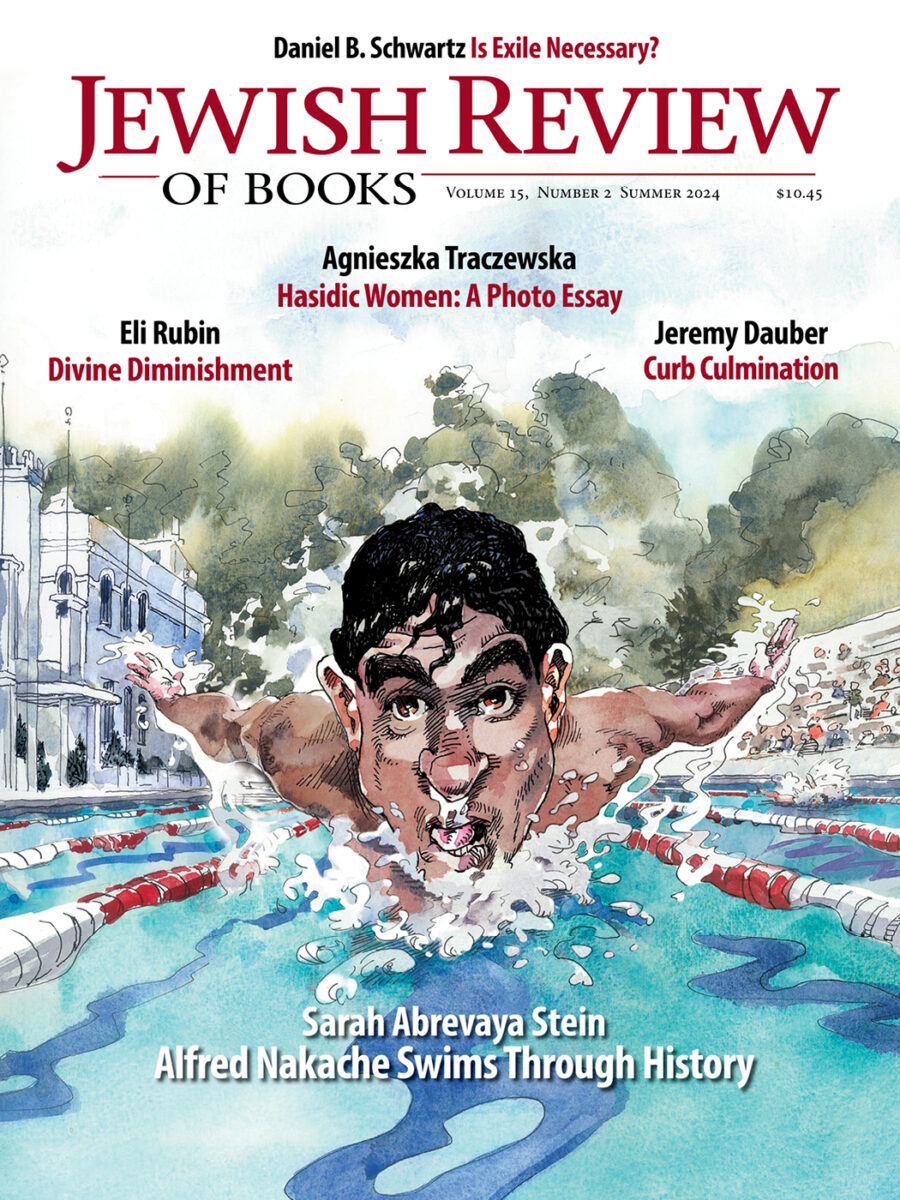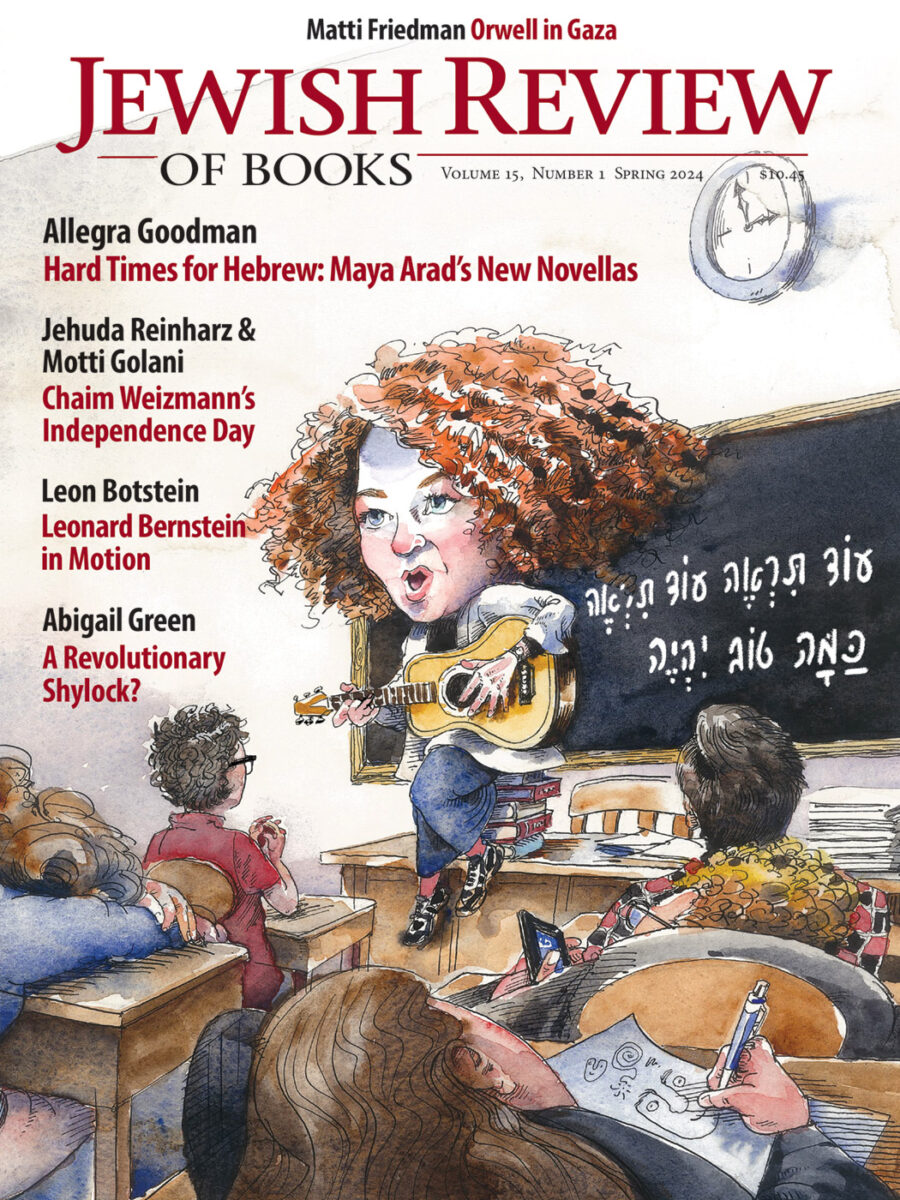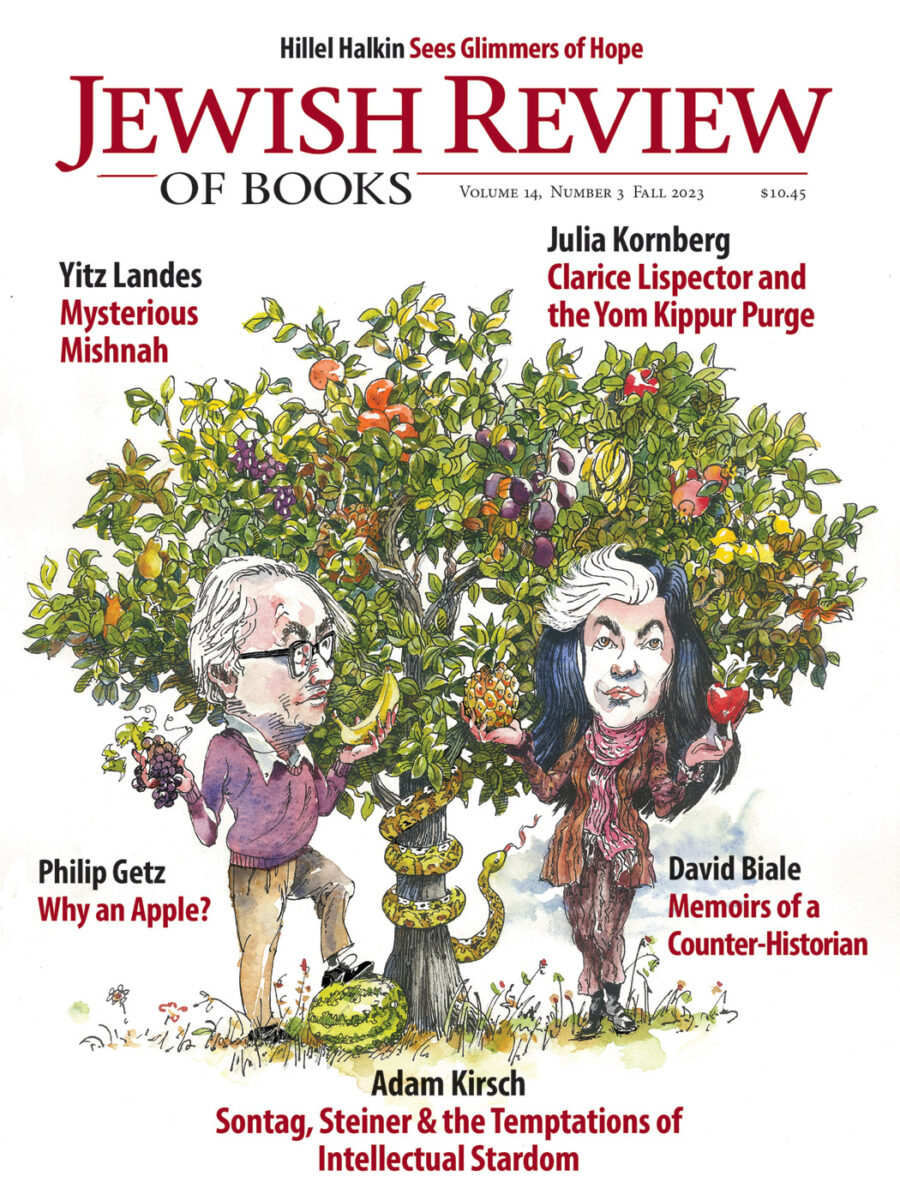Letters
Letters, Fall 2018
The Melting Pot and the Cheshire Cat, Yom Kippur Dance, The Courts and the People, and More
Features
The Book of Radiance
Daniel Matt’s massive new English edition of the Zohar is not only a great translation, it is also one of the great commentaries on the classic work of Jewish mysticism. Insofar as it is possible, Matt has brought the unfathomable, mysterious, and poetic depths of this “book of radiance” to the English reader.
Reviews
The Secret Metaphysician
While a new crop of biographies about Gershom Scholem all, in one way or another, seek to account for the great man's fascination, they are themselves evidence of Scholem’s ongoing allure.
Visualizing Hasidism
Everything contains sparks of the divine, the Ba’al Shem Tov and his disciples taught; therefore, everything—even material things—can be sanctified.
Lost from the Start: Kafka on Spinoza Street
Jerusalem-based writer Benjamin Balint has crafted a wise and eloquent study of Kafka around the eight-year battle in Israeli courts over Max Brod’s literary estate.
Man of Letters
Adam Kirsch’s judicious selection of Lionel Trilling’s letters throws instructive light on both Trilling’s life and American intellectual culture from the 1920s to the 1970s.
Lost in America
Two new books, different in tone but matched in caliber, show Israelis making their way as best they can in America and in life.
Torah U’Madda
Only 3 percent of American Jews are Modern Orthodox, but that number belies the movement's diversity.
Mending Walls
Yoram Hazony's The Virtue of Nationalism is a brilliant achievement, at once learned and sharp, philosophical and politically engaged. It is also sure to be controversial.
Zionisms, Old and New
Arthur Hertzberg's classic anthology The Zionist Idea has received a 21st century makeover. But is the new version really an improvement over the old one? And what does Yossi Klein Halevi have to say in 2018 that hasn't been said before?
A Normal Israel?
Zionism has long based its claim to sovereignty on the universal right to national self-determination, and the phrase “like all other nations” has been incorporated into Israel’s Declaration of Independence, yet the goal of “normalization” has proven to be much more complicated than most early Zionists had thought.
Talmuds and Dragons
Like the medieval literature to which it pays homage, The Inquisitor’s Tale weaves in supernatural events and divine interventions, mythic beasts and wild peoples, and even entrées into medieval theology, all liberally peppered with puns and potty humor.
Readings
Bellow, Broadway Billy, and American Jewry
As Mark Cohen’s new biography reminds us, “Broadway” Billy Rose was America’s master showman for a quarter of a century. When a friend told Saul Bellow how Rose had saved a fellow Jew from an Italian prison in 1939 but refused to speak with him afterward, Bellow knew he had a story.
The Arts
Art Over Vitebsk
After the revolution, Marc Chagall—somewhat implausibly—became plenipotentiary for the affairs of art in the province of Vitebsk. Against all probability, the avant-garde bloomed in a provincial Russian city dominated by Jewish culture.
Lost & Found
The Rebbe and the Professor
Yosef Yitzchak Schneerson, Salo Wittmayer Baron, Ariel Evan Mayse
After the war, the great Jewish historian Salo Baron wrote to Rabbi Yosef Yitzchak Schneersohn, the sixth Lubavitcher Rebbe, for help with his work on the Commission on European Jewish Cultural Reconstruction. As Hannah Arendt suggested in a side note to Baron, the commission probably wasn't “kosher” enough for Schneersohn, but their exchange illuminates a dark historical moment.
Last Word
Tweets and Bellows
What happens when our writers and thinkers express themselves through Facebook, Snapchat, and Twitter instead of on the page?
Past Issues

Issue No. 58
Summer 2024

Issue No. 57
Spring 2024

Issue No. 56
Winter 2024

Issue No. 55